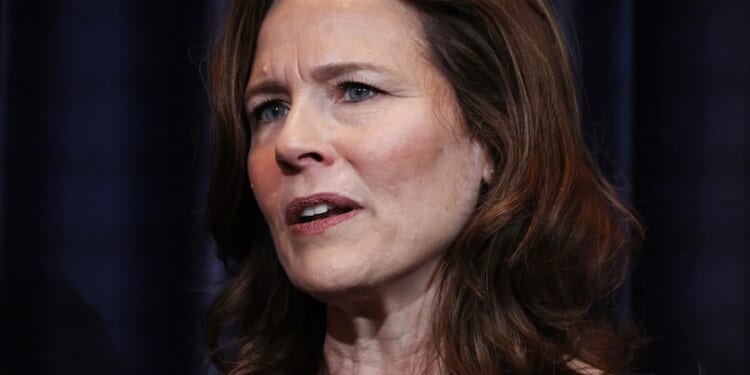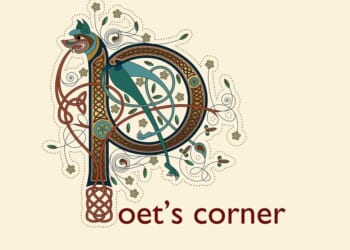(LifeSiteNews) — Supreme Court Justice Amy Coney Barrett has been busy promoting her new book and explaining the overturn of Roe v Wade. Unfortunately, while we applaud her vote in the Dobbs case, she is also promoting the false notion that individual states should be allowed to determine their own abortion law. This focus on state law may have short-term benefits for the pro-life cause, but it misses a real solution that already exists under the 14th Amendment to our Constitution.
Justice Barrett stated in a recent interview that each state should debate the issue of abortion and work out political compromises “to reflect the views of the electorate.” Oh really? She would never say the electorate in each state should decide for themselves whether African Americans have equal rights. The 14th Amendment to our Constitution simply does not allow that, promising legal protection to “any person.”
Justice Harry Blackmun, author of the infamous Roe v. Wade decision, admitted over 50 years ago that if the preborn baby is a person, the case for abortion would collapse, and the right to life would be guaranteed specifically by the 14th Amendment to the Constitution. Since then, modern science has proven the baby’s personhood. Each preborn baby, from the moment of conception, is a genetically unique human being with his or her own DNA separate from the mother. In vitro fertilization has inadvertently proven that every preborn baby has viability outside the mother’s womb, even at an embryonic stage of development.
The 14th Amendment says that no person is to be deprived of life, liberty, or property without due process of law, nor denied equal protection of the laws. While the main impetus for this Amendment in 1868 was to protect African Americans after the Civil War, its wording is much broader, extending to all persons, including the preborn.
Justice Barrett seems to be forgetting one of the fundamental purposes of our Constitution, to guarantee basic rights to everyone, no matter what a majority of voters wants. The Court enforces this by declaring laws “unconstitutional” when necessary, even laws passed by a majority in Congress or state legislatures.
The preborn baby’s personhood is an objective fact, a biological reality that no amount of voting can change. And if someone wants to dispute that science, we should look to the courts, not the ballot box, as the proper forum under our legal system to hear disputed evidence, determine the true facts, and apply existing law to those facts.
One common argument against a 14th Amendment right to life for the preborn is that the Constitution does not expressly define “personhood.” But obviously the Constitution does not and cannot define every word, and courts routinely base their interpretations on common usage and obvious meaning of words at the time a law was enacted. If left to the states to define personhood, individual states could twist the 14th Amendment to mean whatever they want. Members of a particular race could be defined as non-persons, or children under a certain age, or felons, or handicapped people.
In 1868, when the 14th Amendment was ratified by the states, it was widely recognized that unborn babies are legal persons and that understanding was implicit in the Amendment. Abortion was illegal at that time in virtually every state. Twenty-three states and six territories referred to the unborn baby as a “child” in their statutes against abortion. At least 28 jurisdictions labeled abortion as an “offense against the person” or an equivalent criminal classification.
In fact, a lot of the most important words in our Constitution are not explicitly defined, often because they are simply too fundamental, historically and morally inseparable from common usage and traditions when the document was written. These include some of the most critical terms like “religion,” “liberty,” “speech,” “search and seizure,” and “equal protection.” Even when those terms are hard to define, it is the Court’s job to do just that, especially when necessary to protect the rights of vulnerable populations.
And even if those who voted for the 14th Amendment had a less than complete understanding of fetal development, they certainly understood the basic concept of personhood. The meaning of the word “person” under the 14th Amendment does not change even though modern science has enhanced our understanding, proving that it applies to all preborn humans from the moment of conception.
We can argue about the science of personhood, and we can argue the meaning of words in the Constitution, but when it comes to the 14th Amendment, both of those are federal issues that supersede any state laws. If unborn babies are “persons,” as modern science shows, the 14th Amendment outlaws all abortion.
David Bjornstrom is a retired California attorney and member of the U.S. Supreme Court bar. Nothing in this article is to be considered legal advice, practice of law, or an examination of the law or passing upon the legal effect of any act, document, or law.















